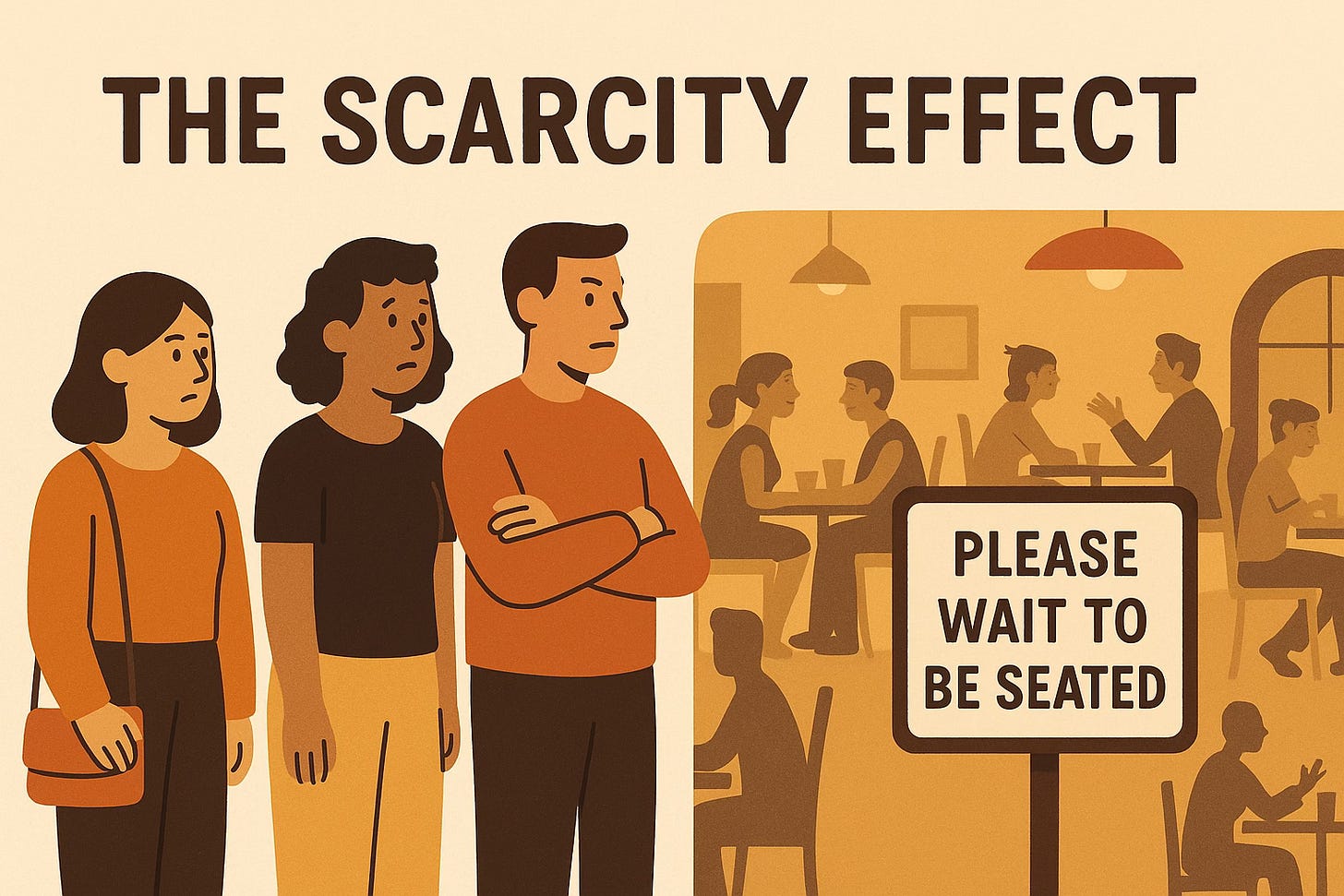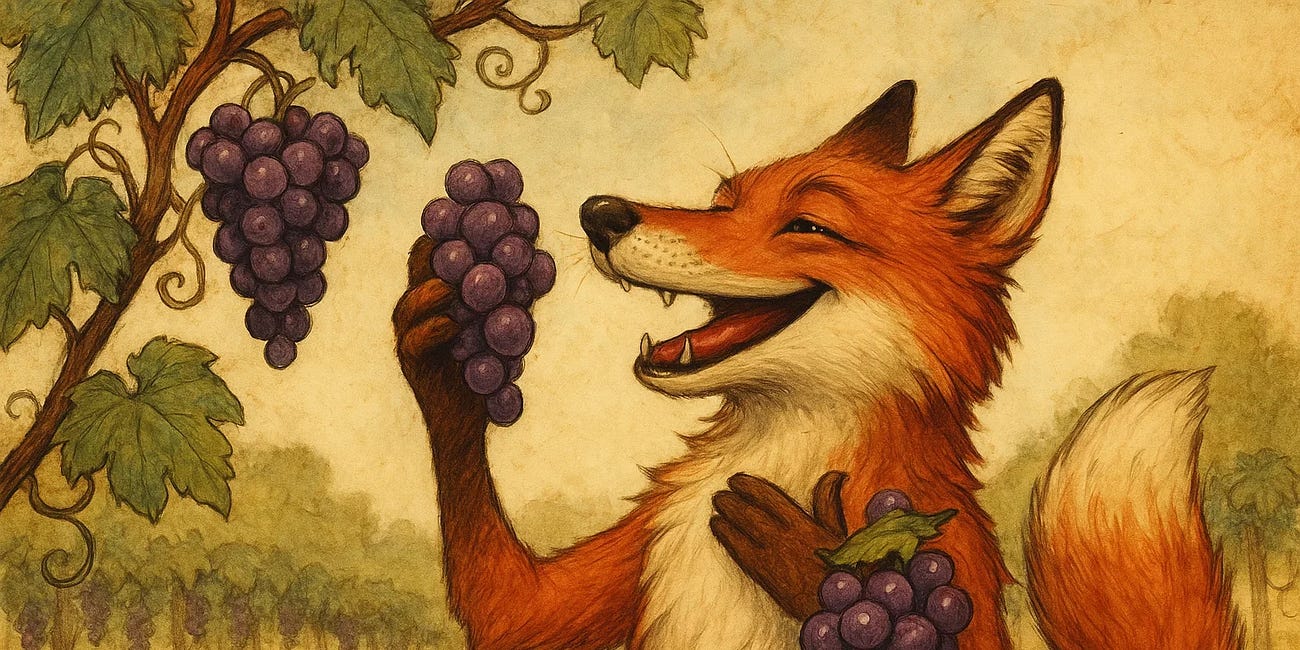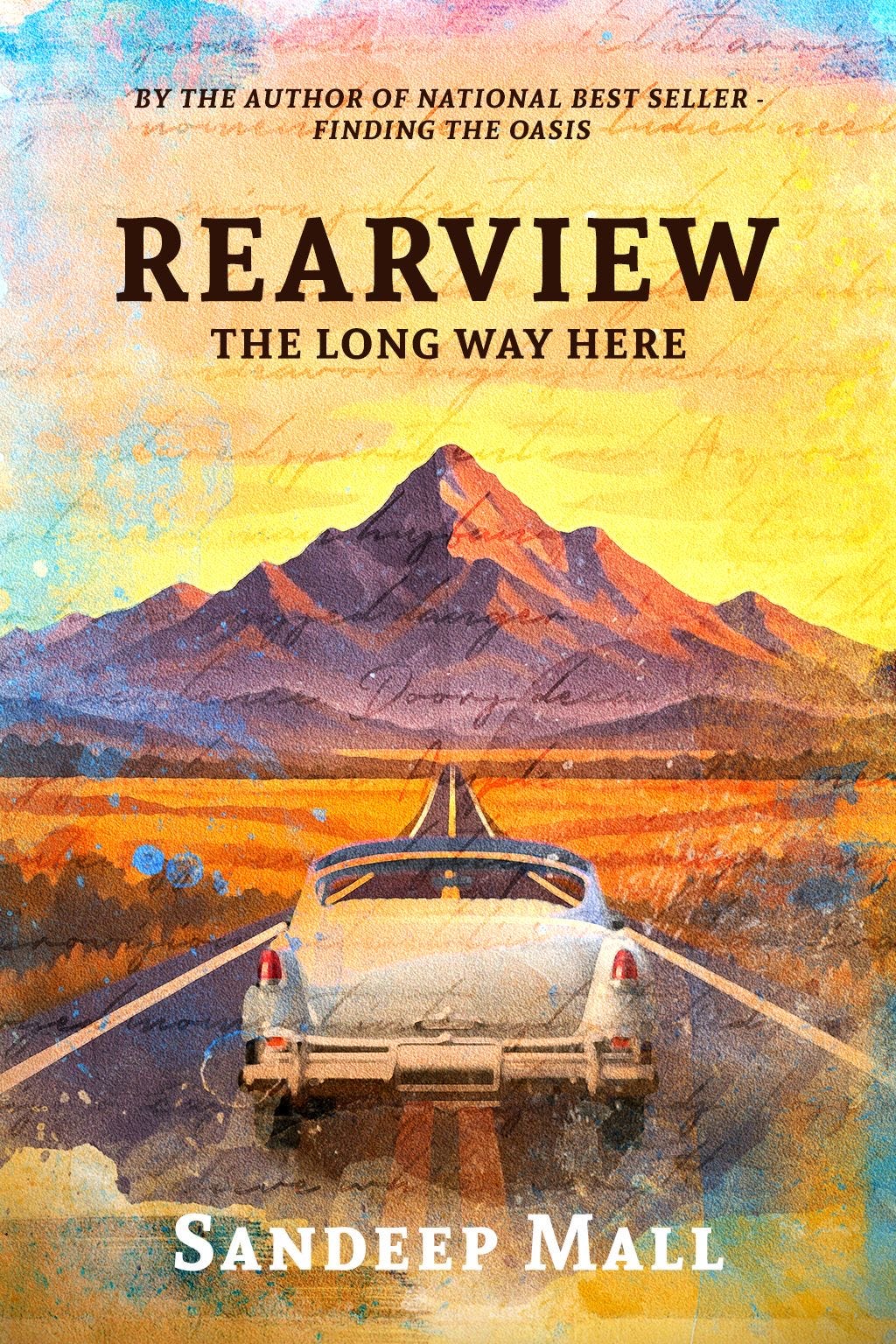Last Sunday we went to Pizza Express for lunch. We made no bookings since the place is usually empty. On reaching Mall of India, we discovered the restaurant had relocated to a smaller space within the mall. It was packed with people. We waited half an hour for a table.
The same instinct leads me to choose highway dhabas with more cars outside and stockpile everything from shampoo to nail cutters despite endless retail options.
Perhaps you rushed to Kumbh because media framed it as a ‘once in 144 years’ event.
The Scarcity Effect makes us value what seems limited or inaccessible. This primitive response once protected our ancestors. Prioritising rare resources meant survival. Today, it drives us to pursue limited-edition sneakers and queue for restaurant tables.
Think about the last time you bought something simply because it might not be available tomorrow.
In their landmark experiment, Worchel, Lee, and Adewole proved this bias with two jars of identical cookies. The nearly empty jar's contents were consistently rated more desirable. This demonstrates how scarcity alone transforms perception.
Modern commerce weaponises this vulnerability through sophisticated means:
Social proof metrics (During a cricket match - 2.6 Cr people viewing this now)
Real-time inventory alerts (‘Only 2 left’)
Countdown timers that reset when examined closely
Exclusive access tiers that multiply perceived status
Algorithm-driven ‘discovery’ of supposedly rare finds
The digital environment intensifies scarcity impulses by creating persistent competition with invisible others. A restaurant table, a concert ticket, a limited NFT. Each becomes more attractive when visibly coveted by others.
Scarcity drives more than just purchases. It shapes entire cultural hierarchies:
The exclusive social club with a years-long waitlist
The celebrity chef's restaurant that requires booking months ahead
The professional network that necessitates an insider's invitation
The spiritual experience marketed as once-in-a-lifetime
What supposedly rare experiences have you pursued primarily because others couldn't access them?
Our scarcity-driven consumption creates genuine scarcity elsewhere. Fast fashion's limited drops drive excess production. Technology's planned obsolescence fills landfills. The pursuit of exclusivity depletes shared resources.
The ultimate irony: manufacturing artificial scarcity accelerates the arrival of actual scarcity in our natural world.
Breaking Free: From Reactive to Deliberate
For non-essential purchases over a certain amount, commit to a three-day pause.
Ask yourself: ‘Am I buying this product or pursuing this experience for its inherent value, or for what others will think?’ The status premium often constitutes the majority of an item's perceived worth.
Notice which environments activate your scarcity response. Online shopping platforms? Social gatherings where possessions become conversation pieces? Sales events? Awareness creates choice.
The antidote to scarcity thinking isn't acquiring more. It's appreciating what exists.
The most valuable experiences rarely require external validation. Ask: ‘Would I want this if I couldn't tell anyone about it or show it to others?’ Your honest answer reveals much.
The crowded restaurant, the popular dhaba, the marketed religious event. These gain perceived value through limited access. But the truly scarce resources in modern life aren't material:
Undivided attention
Meaningful connection
Purposeful work
Inner contentment
Time itself
What if we directed our natural scarcity response toward these genuinely limited resources instead?
The Scarcity Effect transforms ordinary cookies into desirable treats and empty restaurant tables into coveted prizes. By recognising this powerful bias, we reclaim our decision-making from unconscious drives and marketing manipulation.
In a world engineered to trigger perpetual wanting, choosing what's truly valuable may be our most radical act.
⏮ Missed Last Week? Here's What Hit Home
When the Grapes Really Are Sour
We have all heard the story of the fox and the grapes. A hungry fox spots a bunch of grapes hanging high on a vine. It leaps again and again, fails to reach them, and finally walks away muttering, ‘Those grapes are probably sour anyway.’
Listen In
Coming Soon
My New Book - REARVIEW
Thank you for taking out time to read the whole newsletter. I am glad to see you read this message. ☺️
Hope it added value to your wonderful day. If yes, please consider sharing your appreciation on social media and sharing it with anyone who you think might benefit from it.
You can find the links to my social media profiles in the footer.
Meet you on the Thirty Eighth Sunday (38/52) of 2025. Take care




